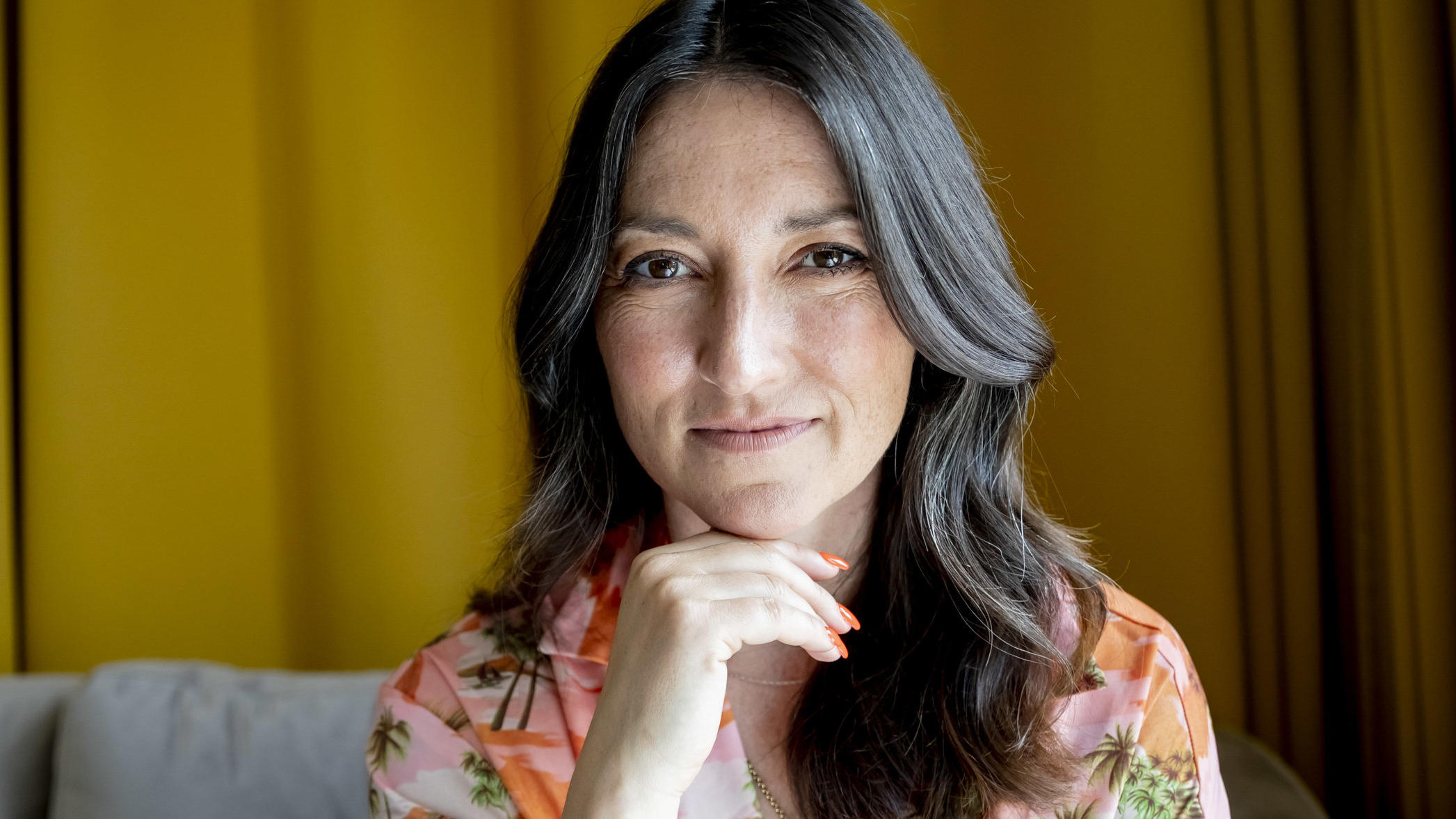Table Of Content

Thirty-year-old Charlotte Roche, born in High Wycombe but raised in Germany, has been a recognizable face in her adopted home country since she started working as a presenter on Viva, the German equivalent of MTV, in the mid-1990s. She went on to write and present programmes and late-night talk shows for Arte and ZDF, and won the highly respected Grimme Prize for television in 2004. But only now that she has written her first book are people ready to take her seriously.
Why Charlotte Roche's new book isn't for modern women - DW (English)
Why Charlotte Roche's new book isn't for modern women.
Posted: Tue, 06 Oct 2015 07:00:00 GMT [source]
Books
All of this is supposed to be brave and disturbing, but “Wetlands” is simply and willfully aggressive. Helen’s a mess, and not a very interesting one. I started to suspect that I was writing a very arrogant book – something very ‘top-down’ rather than ‘bottom-up’. ‘Charlotte Roche tells Germany’s women how to appreciate their sexual organs’. I know that I have my own limits, my own taboos too, when it comes to talking about sex, and I realized that I could only really go full throttle if I voiced these ideas through a fictional character. This nut sees no connection between her delight in bacteria (she likes to rub her vulva all over public toilet seats, mopping up the stray pubic hairs and excretions of strangers) and the anal blister and concomitant infection that now require surgery of the bleakest kind.
More to Read
I can only wish that the young women who think “Wetlands” sounds intriguing will head to the erotica section of the nearest women’s bookstore first. Laid out on a hospital bed, bottom bare to the breeze, Helen ruminates at length on her body and its products. Occasionally, some oafish doctor comes in and says something oafish (this part is quite believable). Sometimes, Helen is in pain and sometimes she is hungry. But mostly, she thinks, in the great German tradition.
More From the Los Angeles Times
Feuchtgebiete, which translates as Wetlands, or Moist Patches, is the debut novel from Charlotte Roche. As it opens, we find 18-year-old narrator Helen Memel in hospital, after an accident shaving her intimate parts. The remainder of the book plays out entirely on the proctology ward where, in between ruminating on her haemorrhoids and sexual proclivities, Helen asks her male nurse to photograph her wound, tries to seduce him, and hides under her bed to masturbate. She has an insatiable, childlike curiosity about the sight and smell and taste of bodies, especially her own. Hygiene, she reflects, "is not a major concern of mine".
Already troubled by a complicated family history, Kiehl has been left a "wounded animal" by the accident. She is suicidal yet terrified of death, and clings to sanity for the sake of her husband and seven-year-old daughter with the help of thrice-weekly sessions with Frau Drescher, her therapist. Roche certainly knows how to write a memorable opening scene.

I wanted to point out how a lot of the emancipatory principles from the ’60s and ’70s have not yet arrived properly. In that respect, this book really is a manifesto, and I do think it has a serious message. "Yes, you're right, it would have been more logical if she had had hair. But you see, the book started off very political. But then it got very unpolitical, it just happened."
Wetlands opens in a hospital room after an intimate shaving accident. It gives a detailed topography of Helen's hemorrhoids, continues into the subject of anal intercourse and only gains momentum from there, eventually reaching avocado pits as objects of female sexual satisfaction and – here is where the debate kicks in – just possibly female empowerment. Clearly the novel has struck a nerve, catching a wave of popular interest in renewing the debate over women's roles and image in society.
She has a quick, dirty mind, yet somehow or other she seems oddly naïve and very sweet. As soon as she turned 18, she had herself sterilized. She wants to stay in the hospital because she hopes her divorced parents will accidentally visit at the same time and magically recognize they still love each other. The novel's basic premise is that Helen has had sex, feels great about that, and is generally at home and easy with human fluids in a way that the rest of us are not.
No one in her family communicates -- even when they visit. It soon becomes apparent that Helen is so desperately into her bodily functions and pleasures because no one else -- not a lover and definitely not her mother or father -- is actually interested in her. You have to make your own way.” In the end, no pun intended, she makes an interesting choice that works out better than anyone would expect.
While she is stuck in bed, unable to leave until she has a bowel movement, Helen keeps herself occupied reminiscing about her exploits. Kiehl believes that in their preoccupation with receiving sexual pleasure, the older generation of feminists forgot that good sex is all about reciprocity. As a good wife and mother, she indulges her husband's desires, even accompanying him to brothels. The child of a broken marriage, she is determined that her own marriage will "last forever".
As with Chuck Palahniuk, there's a consistent - and somewhat formulaic - endeavour here to gross you out. Helen is keen to inform us, repeatedly, that every squeezable, drainable, detachable substance produced by the body (hers, her lovers', or yours) can be and should be eaten - except hair, which she shaves off weekly, and ear wax, for which she shows unexpected disdain. There's no mention of belly button fluff either - but blackheads, snot, puke, pus, scabs, tears, smegma, eyelid crumbs, vaginal discharges, menstrual blood and other gunk are all acceptable fodder, especially when dried to a crust under the fingernails. "I'm my own garbage disposal. Bodily secretion recycler," she tells us proudly. The passage in which she rips open her own wound to prolong her stay in hospital is even more challenging for the weak-stomached reader. I’m convinced that in contemporary society a lot of women have a very messed-up attitude to their own bodies.
These include self-mutilation, amnesia triggered by recreational drug abuse, people's inability to deal with suicide attempts, and incest. For Kiehl, sex provides relief from a sadness that threatens to overwhelm her. Several years earlier, on the eve of her wedding to a previous partner, three of her brothers were killed and her mother injured in a car crash. The accident and its fallout are described in devastating detail – the account is, apparently, largely autobiographical. With her jaunty dissection of the sex life and the private grooming habits of the novel's 18-year-old narrator, Helen Memel, Charlotte Roche has turned the previously unspeakable into the national conversation in Germany.
She has no qualms about public bathrooms, the toilet seats or even the floors, and she is proud that she rarely bathes. “Obviously that means I never wash my face either. I think it’s overrated anyway.” Everything she does is a test to see whether the old wives’ tales are true and if bacterium is really such a terrible thing.
If you ever wondered what you'd be like if you weren't shy, polite, tolerant, modest, sexually repressed, logical and constrained by modern standards of hygiene, this may be the book for you. Charlotte Roche's heroine, Helen, is a wistful feminist creation, a walking, talking, bleeding, masturbating, haemorrhoid-bedecked apologist for anal sex and home-made tampons. She's not without a touch of Munchausen's, too, trying to use a self-induced hospital emergency to reunite her long-estranged parents. Open it at random and read a page and you cannot help but blush. At worst you think she intends to shock and disgust; at best to get people, particularly women, to talk about taboo subjects. But if you can get past the rushing torrent of vaginal secretions, pus, fecal matter and menstrual blood, there is an affecting story of a sad and incredibly lonely girl.

No comments:
Post a Comment